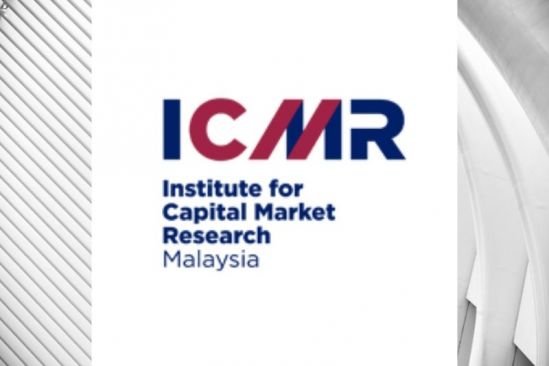Kuala Lumpur, 15 December 2021 – The Institute for Capital Market Research (ICMR) Malaysia recently launched its latest research report on “Navigating Malaysia’s Private Equity Space: Challenges and Opportunities.” This is another report in ICMR’s series on the study of private market trends following earlier reports which include “Catalysing the growth of the venture capital industry: Malaysia’s perspective” and “Potential policy responses to primary market changes arising from innovation trends”. These reports separately address the developmental needs for the Malaysia venture capital industry and pre-IPO space. ICMR has been conducting studies into the private market space as it has moved from the periphery of the global investment landscape into the mainstream.
The global private equity industry has enjoyed formidable growth over the last decade led by increasing investor allocations, the outperformance of private firms versus public companies, and market appreciation. Assets under management (AUM) grew at an annual rate of 9% over the past decade to reach over US$ 4.3 trillion in 2020, up from US$ 1.8 trillion in 2010.
According to data provider Preqin, the global PE industry’s AUM growth is expected to continue its upward trajectory to reach over US$ 9.0 trillion by 2025, with Asia being a key driver. Asia’s share of PE activities has continued to advance from 9% of total deal value globally in 2010 to 17% in 2020. The industry is slowly emerging as a mainstream asset class that is bound to affect many areas of the economy.
Nonetheless, ICMR’s report found the PE industry in Malaysia has remained sluggish, especially when compared to growth levels seen in more advanced economies. According to the data provided by Preqin, AUM for the Malaysia PE industry has been growing at a slow pace of 6.7% annually, from USD$ 3.7 billion in 2010 to USD$ 6.8 billion in 2020, compared to some developed countries that recorded growth of over 10%.
ICMR acknowledges that over the past two decades, Malaysia has undertaken various measures to deepen the PE industry, which includes setting up a dedicated Government-linked PE investment firm in EKUINAS, provision of matching funds, as well as establishing a Venture Capital/Private Equity association to help improve and internationalise the local industry.
However, ICMR notes that more needs to be done in Malaysia to level the playing field against PE industries in more advanced markets. A healthier and more diverse ecosystem of fund managers and private investors is required for growing the Malaysian PE industry to address the country’s rising liquidity needs going forward.
Currently, the PE industry of Malaysia is less diversified as most private funds are targeting early stage venture investments. As of September 2020, growth funds made up over 49% of total Malaysia-focused private funds, aggregating USD$ 157.7 million in AUM. These funds are
generally known as funds that typically takes minority positions in investee companies without the use of leverage. Buyouts and late-stage strategies comprised only 1.8% and 0.4% respectively of Malaysia’s total private funds.
While capitals are being deployed actively in search of attractive investment opportunities, most PE deals in Malaysia are concentrated in limited sectors such as consumer discretionary (56.1%) and raw materials/energy utilities (12%), unlike in other regions.
Although the COVID-19 pandemic has spurred private investors’ interest in other sectors such as technology and healthcare, ICMR notes that Malaysia still needs broader opportunities, especially in agriculture, financial and insurance services, to address the growing challenges brought on by urbanisation, food security and infectious disease outbreaks.
More private investments are also needed in Malaysia’s Halal industry to broaden existing verticals into areas such as pharmaceuticals, tourism, and healthcare, as well as to deepen industry connections with regional and global supply chains. Together with global PE dry powder amounting to USD$ 4 trillion, this capital can help unlock the industry’s huge potential for growth.
To this end, ICMR’s report concludes with recommendations for developing Malaysia’s PE industry. This includes policies to encourage more private investments in areas that would improve the resiliency and sustainability of the country’s economy, emphasise community and economic development activities, as well as bridge the gaps between domestic and global private capital fundraising.
Tan Sri Munir Majid, Chairman of ICMR, said: “The explosive growth in global private capital AUM offers enormous investment opportunities to revitalise the Malaysian economy, especially in the post-Covid-19 world. But to spark the fire, we need a modern and robust regulatory regime for our PE industry, a pro-business environment, and continued government support through tailored tax incentives.”







